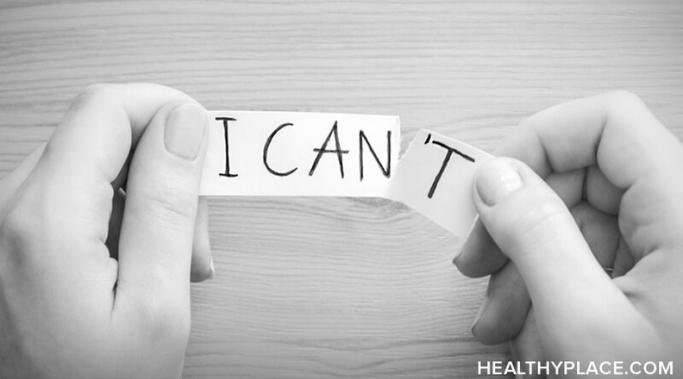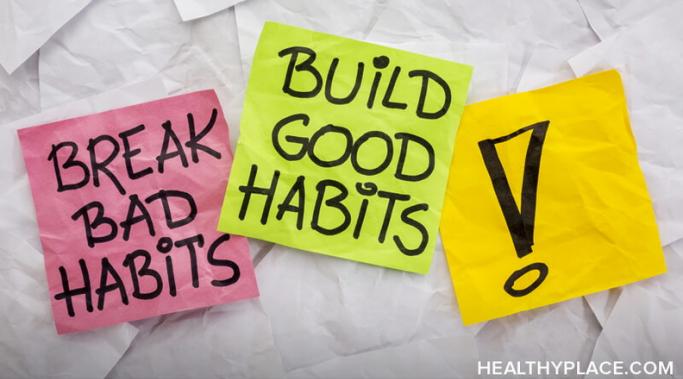You might be prone to feel jealous of other people's success and to feel worse about yourself if you suffer from low self-esteem. This is why it’s important to perceive other people’s achievements in a different light. Not only is it unhealthy to let your self-esteem be swayed by what other people are doing, it is also wasteful and unproductive to be jealous of other people's success.
Self Esteem Problems
There's a connection between low self-esteem and self-harm as having low self-esteem can sometimes lead to repetitive, destructive habits1 – including self-harming behavior. It’s important to be aware of why having a warped and negative opinion of yourself can lead to self-harm, as well as take note of the positive coping mechanisms you can adopt when times get tough.
Self-esteem impacts career success and low self-esteem can be one of the countless roadblocks that you will encounter when you follow a particular career path. Whether you’re setting up a business or developing a skill that you’re passionate about, there can be a lot of hardship involved – you may make disheartening mistakes and be confronted with serious financial struggles (Emotional Resilience: Bounce Back from Difficulty). When you commit yourself to an authentic career path, low self-esteem is another major setback you may have to contend with. It can make you give up when the going gets tough and cause you to doubt your abilities. It’s imperative to shake off this mental baggage causing low self-esteem that hinders career success.
The habit of seeking approval from others can destroy your self-esteem. When people around you are concerned that you have low self-esteem or that you always harshly criticise yourself, they will want to point out all of your likable characteristics and virtues. These comments may come from a place of care and support and may be just what you need to snap out of negative self-talk. However, there is also a risk of relying on these self-esteem boosts from others in order to feel good about yourself. If you want to gain and maintain a stronger form of self-esteem, it’s vital to determine your own self-worth and to stop seeking approval from others.
You can avoid the self-esteem traps that create unrealistic self-importance instead of healthy self-esteem. You should continue to build yourself up despite possible self-esteem traps because living with low self-esteem has many negative consequences as well. Low self-esteem can make you unwilling and unmotivated to achieve what you are capable of, averse to relationships that you deserve, and it can make you vulnerable to depression.1 In order to protect yourself, it is, therefore, vital to build your self-esteem. However, there are ways that build self-esteem that can end up fostering other negative outcomes in your life, or self-esteem traps. If you want to maximize your wellbeing and have more positive interactions with people, then it pays to be mindful of the self-esteem traps of narcissism, jealousy and resentment.
Depression and low self-esteem can be closely connected, and boosting your self-esteem when they both appear can be difficult. When you live with low self-esteem for a long time, you may come to believe that you are inherently worthless, and this deep sense of worthlessness is a common symptom of depression. Conversely, if you’ve lived with depression for a long time, your self-esteem can be impacted. Perhaps when the motivation and energy are drained out of you, you lose confidence in your abilities and value. Boosting your self-esteem then can be particularly challenging.
Mindful social media habits are important skills to learn to protect our self-esteem. Social media allows us to get a glimpse into the lives of so many people. Unfortunately, constant updates about people’s vacations, weddings, job offers, graduations and newborns don’t always fill us with joy. In fact, being inundated with everyone else’s highlight reel can damage our mental health. Many studies have shown a link between social media use and low self-esteem. For example, a study published this year found that one hour spent on Facebook is associated with a decrease in an individual’s self-esteem score, which authors say is influenced by the social comparisons that people engage in.1 But there are ways to integrate mindful social media use so that you can protect your self-esteem.
Writing exercises for low self-esteem can help when we get trapped in failing to see how the judgments we make about ourselves are inaccurate. It is helpful, therefore, to use certain techniques that allow you to untangle yourself from your thoughts, to take a step back, and see that you can’t possibly justify the self-critical thoughts you’re having. Making notes about your thoughts is one way to gain this healthy perspective. In this way, you can use writing exercises to tackle low self-esteem.
Do you know how to talk back to your negative self-talk? Knowing how to identify negative self-talk first is important because what you tell yourself becomes your reality. When your core beliefs are self-critical, doubtful and make you feel inadequate, your self-esteem suffers tremendously. The good news is if you are willing, you can talk back to negative self-talk and transform it dramatically with just a little effort.
Do you wish you could take control of your inner critic, that voice in your head that constantly puts you down? It is the critical inner voice that says unkind things about you and paints a negative view of who you are. If you don't take control of this inner critic, it can become quite powerful and authoritative, which will make you pay more attention to it. This can end up damaging your self-esteem. But you can take control of the inner critic and find peace of mind.









